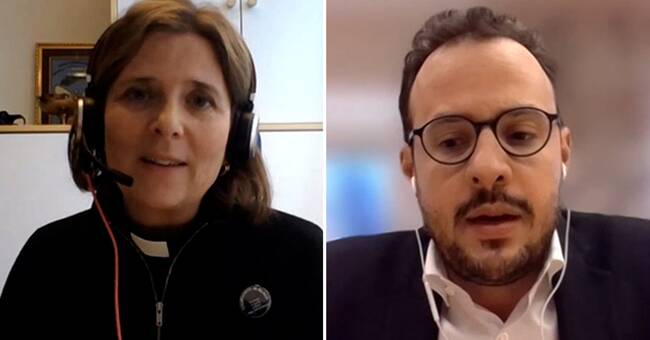On Wednesday, the message came: covid proof will be introduced on 1 December.
The new rules mean that public gatherings with more than 100 visitors indoors must check covid passes - or follow restrictions that have not yet been developed by the Swedish Public Health Agency.
There is still uncertainty as to how this affects religious communities.
According to FHM's CEO Karin Tegmark Wisell, it may be relevant with stricter restrictions such as limiting the number of people per square meter.
"It will be very difficult for mosques"
Sweden's Christian Council, SKR, is generally positive about vaccine passes but has previously been critical of whether it would also include worship services and religious gatherings - something they stand by.
- It is too great a restriction in the constitutionally protected freedom of religion, says Director General Sofia Camnerin.
- Having to identify oneself, show identity documents when attending a service, is also a restriction on personal integrity.
Mahmoud Khalfi, imam of Stockholm's mosque and spokesman for religious issues at the Islamic Association, tells the news agency TT that it can be difficult for them to follow the new rules and get enough staff.
Many members visit the mosque daily, and every Friday as many as 1,200 to 1,500 people.
Khalfi therefore requests support from the community, for example to hire guards at large events.
- For our part, it would be needed on Friday prayers when entering.
It will be very difficult for mosques to implement these restrictions on their own, he tells TT.
Prefers vaccine sessions
Aron Verständig is chairman of the Jewish Central Council in Sweden.
He agrees with Sweden's Christian council that it entails a certain restriction on religious freedom, but says that they prefer vaccine passes to needing restrictions like the previous ones that applied before 29 September.
- Then it is very important that you constantly reconsider and do not let this order remain longer than is absolutely necessary.
The Agency for the Support of Religious Communities, SST, has also expressed concern about what the rules may mean for religious freedom, not least for communities with small premises or many members.
- We will see how the deviation opportunities will be designed, but I think that the proposal that has now been developed by the government seems to be quite well balanced, says Isak Reichel, director of SST.

